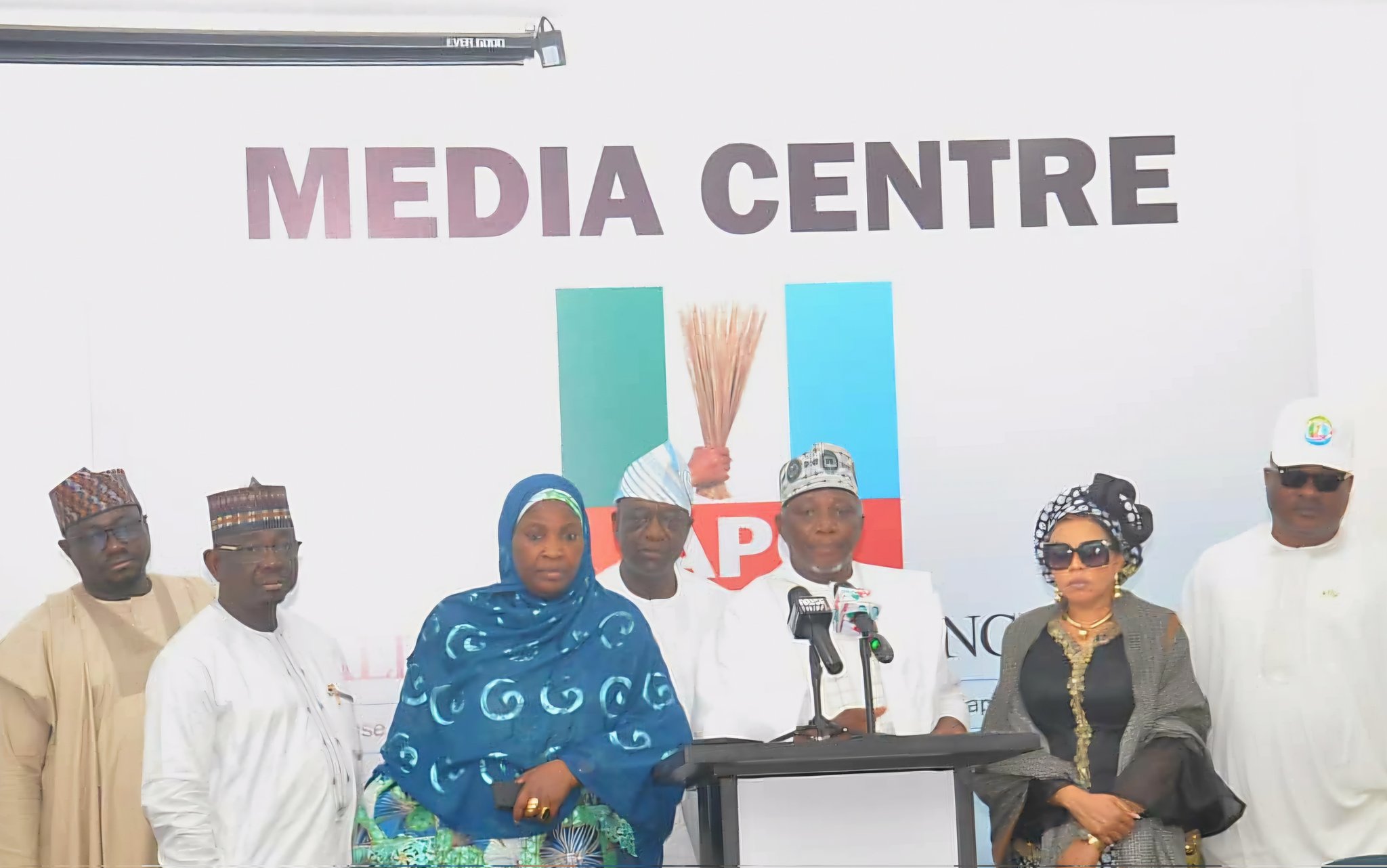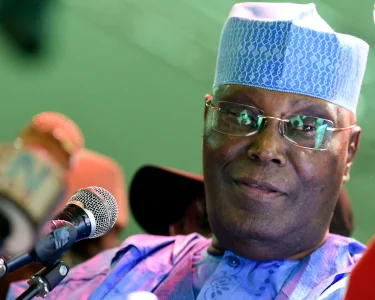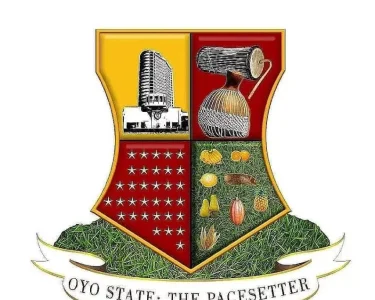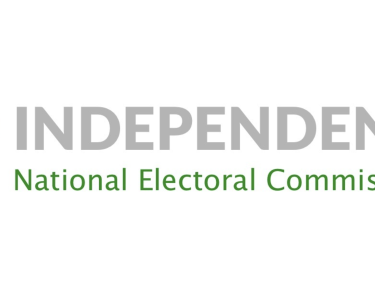All Progressives Congress (APC)
Holds NEC meeting on 24 July to appoint new national chairman
Summary
- NEC meeting scheduled to nominate new APC National Chairman after Ganduje’s resignation
- Ali Bukar Dalori named Acting Chairman, with formal confirmation possible at NEC
- Party to address leadership transition, upcoming elections, and internal restructuring
Abuja, Nigeria – The All Progressives Congress (APC) has announced that its National Executive Committee (NEC) will meet on 24 July 2025 to nominate a substantive National Chairman, following the resignation of Dr Abdullahi Umar Ganduje on health grounds.
The announcement was made by Deputy National Secretary Festus Fuanter after an emergency National Working Committee (NWC) session at the party’s national secretariat in Abuja on 30 June.
The NEC meeting, scheduled to take place at the APC headquarters, will address critical leadership transitions as well as preparations for bye-elections, ward and state congresses, and broader internal restructuring in advance of the 2027 general elections. A formal notice has been sent to the Independent National Electoral Commission (INEC) in line with statutory requirements.
Dr Ganduje, a former governor of Kano State, assumed the chairmanship in August 2023 following the resignation of Abdullahi Adamu. His tenure ended abruptly on 27 June 2025 when he cited deteriorating health as the reason for his resignation. His departure follows a pattern of instability within the APC’s top leadership, with previous chairmen also stepping down amid controversy or internal pressures.
In the wake of Ganduje’s exit, Deputy National Chairman (North), Ali Bukar Dalori, was endorsed by the NWC as Acting National Chairman and reportedly approved by President Bola Tinubu. Dalori, who assumed the role on 30 June, pledged to promote inclusivity and transparency, urging unity among party members during this transitional phase.
 The new acting APC National Chairman, Hon. Ali Bukar Dalori, presiding over a meeting of the National Working Committee at the Party’s National Secretariat in Abuja
The new acting APC National Chairman, Hon. Ali Bukar Dalori, presiding over a meeting of the National Working Committee at the Party’s National Secretariat in Abuja
There is strong speculation that Dalori could be confirmed as the substantive chairman during the NEC meeting, though other contenders may emerge as internal consultations continue. His interim leadership has already been marked by efforts to tone down factional rhetoric and stabilise party structures.
The NEC, as the highest decision-making body of the APC outside of the national convention, is also expected to deliberate on key political events, including upcoming legislative bye-elections caused by resignations or deaths, and to ratify timelines for the next round of party congresses. The NEC’s resolutions will require final confirmation at a future national convention.
Ganduje’s resignation has reignited conversations about internal divisions and regional power balances within the APC. While some party faithful see this as a chance to rebuild unity and strengthen preparations for 2027, others perceive the leadership shuffle as a power play among key figures, including state governors and presidential allies.
Posts on social media platform X suggest heightened interest and anticipation around the upcoming NEC session, with one describing the moment as a “reshuffling of the table.”
The APC has a history of turbulent leadership transitions. Since its formation in 2013 from a merger of opposition parties including the ACN, CPC, ANPP, and factions of APGA and PDP, it has experienced multiple chairmanship turnovers. These include Chief Bisi Akande (interim), John Odigie Oyegun, Adams Oshiomhole, Abdullahi Adamu, and now Abdullahi Ganduje, each of whom exited under contentious or abrupt circumstances.
As the ruling party gears up for the 2027 elections, the outcome of the 24 July NEC meeting could significantly shape its trajectory. The ability of the APC to consolidate leadership, manage internal factions, and maintain national support will be pivotal in its quest to remain Nigeria’s dominant political force.







